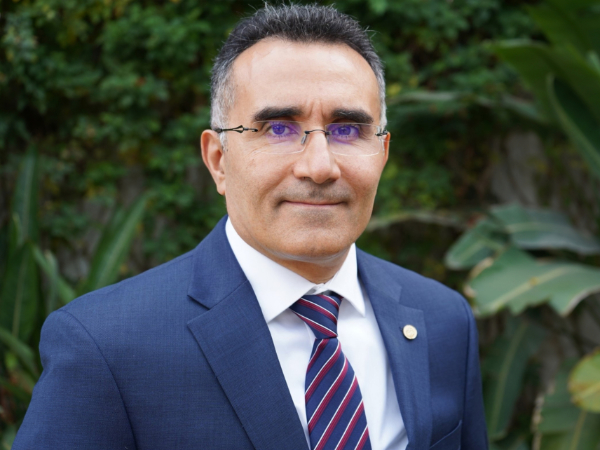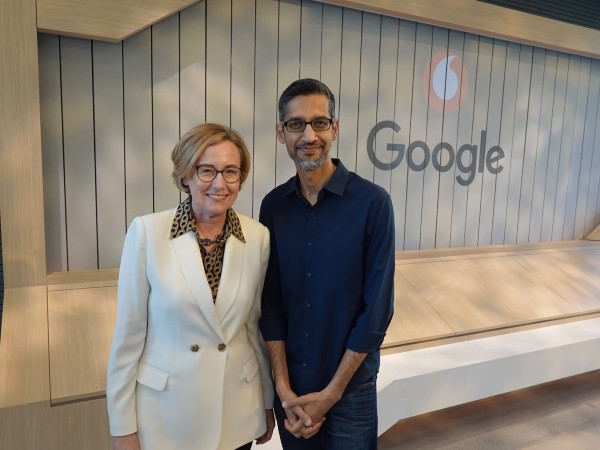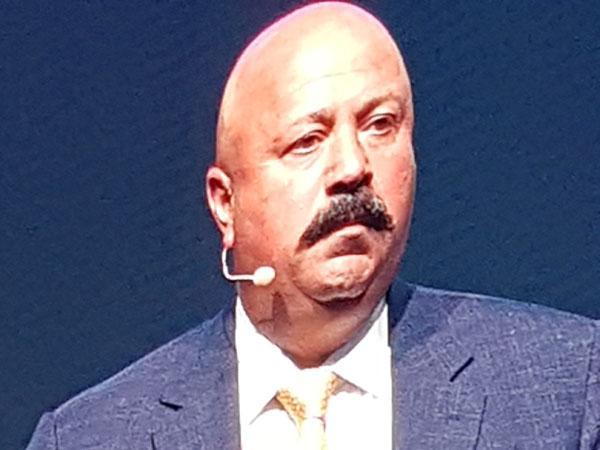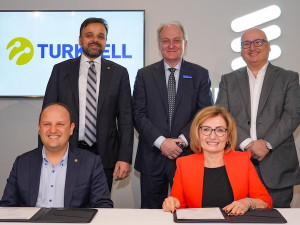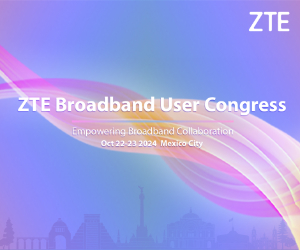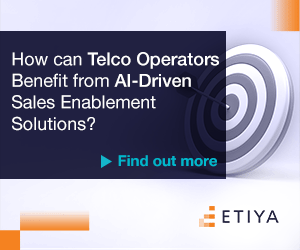Developing Telecoms’ Founder Alec Barton recently caught up with Kaan Terzioğlu, CEO of Turkcell at Huawei’s Operations Transformation Forum 2018 (#OTF2018) in Munich.
In his keynote address, Terzioğlu shared some interesting insights about how Turkcell is delivering operational transformation across its network in Turkey with the support of Huawei.
Turkcell has developed and launched a range of services including Lifebox, for personal cloud storage, Fizy, a digital music and video service, TV Plus, an interactive TV service, BIP, a messaging service, and Turkcell Academy to provide high quality education resources. Focused on local needs, interests and tastes, these services have helped Turkcell to build its brand and market share profitably.
Building on this knowledge and experience, Turkcell is now seeking to share its expertise with other operators in emerging markets on a commercial basis and has set up a spin-off, Lifecell Ventures. Kaan Terzioğlu’s strong personal commitment to stand up to what he calls the “digital imperialism” of the last decade, which he believes is the underlying cause of many of the challenges operators in emerging markets are currently experiencing, is a key driver to this.
How did Turkcell’s Lifecell Ventures spin-off start and what are its philosophy and aims in particular with regards to working with other operators in emerging markets?
Lifecell Ventures was launched by Turkcell about a year ago. To be compliant with the European Union’s regulations on data privacy, we based Lifecell Ventures in the Netherlands and the company’s objective to reverse engineer Turkcell’s digital transformational story, and make it available for other operators around the world.
The reason I think this is very critical and important is that I neither believe in, and I don’t find right, the digital imperialism the world went through in the last decade. The data in countries has been violently exploited by global players and very little value has been created in the countries where this has happened.
When we started our journey with OTT products from messaging to music to TV to cloud services we made a principle to ourselves. We said: you are building the digital economy in Turkey and we will help other operators to build the same in their own countries.
This is because I think every country’s data should stay in that country. Their engineers have to contribute, their information has to be in their own data centres, their government and their regulatory bodies have to be setting the stage for fair competition for everyone in every country.
That’s why we thought it would be the right thing to franchise out our digital service capabilities rather than to try to become a global player. That’s not our intention, but instead we would like to play the role of incubating and becoming an accelerator of digital transformation of other emerging market telcos. That is the mission of Lifecell Ventures.
Which operators are you working with currently?
We have our own operations in Turkey, Belarus, Cyprus and Ukraine where we are of course doing this. In addition to these, one third party operator is currently operational in Moldova. Moldcell is taking BIP and Lifebox, our cloud services product, to their market, with their own branding.
However, we are in addition now talking with almost 30 other operators who are looking at how they would take the services to the market. Some of these will white label and others will take the packages with the brands we have already set up. It is clear that the strongest interest is in the search engine, instant messaging, music, TV and cloud services. These are services which have the greatest relevance for them.
Is Lifecell Ventures providing these services on a managed services basis or for operators to install and operate themselves?
We believe in giving operators choice. There are some operators which have the capability to do everything themselves and prefer to do it under their own brand, which is fine by us. Others want to get it as a service from us and we can also accommodate that.
You have said that Lifecell Ventures has been collaborating with other suppliers such as App developers in order to build your services portfolio. Where are these companies based?
We are collaborating with all companies in the market. With Spotify for example, on the one hand we are competing against them with our own product but at other times we partner with them. This is because the customer’s choice is paramount. Our platform enables customers to curate services like Spotify, Facebook and Netflix into their services, providing them with the necessary cyber security, and services for collection, payment and so forth.
We also support local start-ups. Very recently a company approached us with a proposal for an online trivia contest. The impact of this service has been huge since its launch with over 600,000 people in Turkey going from the big screen to the small screen at 8.30pm every evening, to go through 12 questions live, in real-time.
I believe this has changed the media landscape as people have in a very short period of time become aware they can have live interaction with a TV show. To deliver real-time interaction with over half a million people is well beyond the capability of a start-up but by working together Turkcell has enabled this new service.
Do you feel that Lifecell Ventures has the capability and potential to grow to the extent necessary to successfully compete with major Silicon Valley OTT services such as you have mentioned?
As a franchise operator, I believe the answer to this is yes. The way to compete in this marketplace is country by country. When we started Fizy people said we were crazy to try and take on a service such as Spotify. Today, three and half years later, we are four times bigger than Spotify in Turkey.
Why do you believe this is the case?
There are four very important reasons for this which apply to all the services Turkcell has developed and in all emerging markets. These are:
- Firstly, and this is critical, the service must be relevant to the customer;
- Secondly, customers feel very confident in sharing their data – user IDs, passwords, credit card information and so forth because their telco is licensed for this;
- Third, when you stop selling gigabytes and start selling music minutes as part of their package it becomes a big convenience for the customer. Customers are afraid to consume mobile internet because they think they will get big bills so they seek out wi-fi and limit activity to within the home;
- Fourthly, it changes customers’ perception of mobile internet. When an operator introduces the concept of unlimited music or unlimited TV it breaks down the perception the mobile internet is too expensive and potentially beyond their reach.
This recipe has worked for Turkcell and I am sure that it will work for other telcos.




